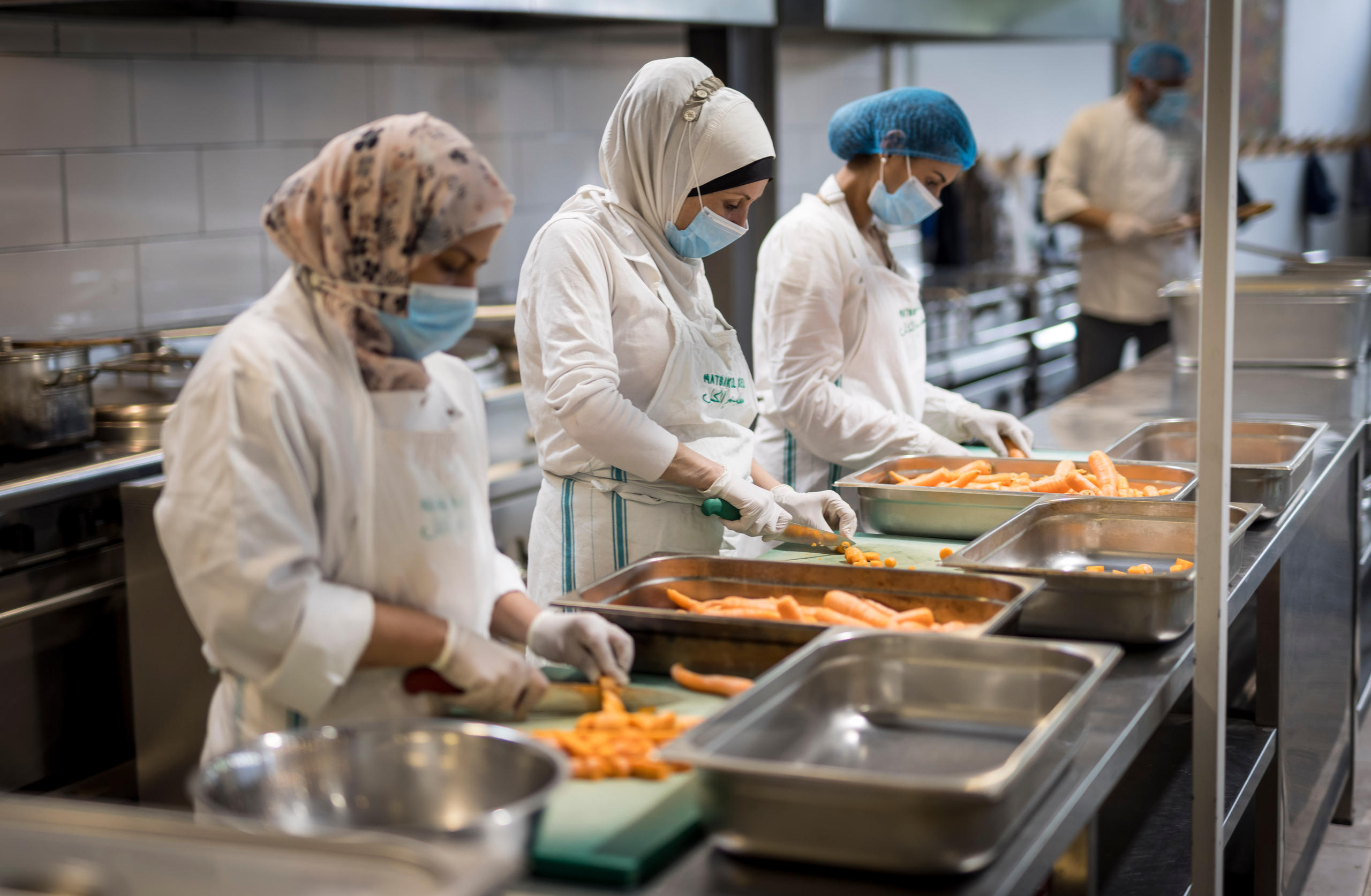Women are cutting carrots in an industrial kitchen in Beirut.
Copyright© Thomas Koehler/photothek.de
Stabilisation, economic recovery and reforms
1. Good governance and reforms:
The BMZ is promoting good governance in Lebanon with a view to improving accountability, transparency, citizen participation and performance management. Through advisory services, data collection, analyses and the introduction of digital tools it is supporting national reform processes such as the implementation of the anti-corruption strategy, reforms of public procurement processes, measures to counter money laundering and the modernisation of public services. Municipalities, too, are being strengthened and assisted in implementing reforms. Selected municipalities are also being included in interventions to test participatory approaches. The close cooperation with civil society organisations and alternative media is strengthening independent actors with a view to fostering trust in government action in the long term.
2. Social services:
Social services in Lebanon are being expanded and strengthened across a number of projects. Public Social Development Centres in municipalities, for example, are being rehabilitated; efforts are made to significantly develop their capacities for providing coordinated social services to vulnerable population groups on the ground. At the same time, the Ministry of Social Affairs is benefiting from advisory services and support for implementing the national strategy on social protection.
3. Public education system:
Lebanon’s education system is suffering from the severe impacts of the crisis in Syria and the many overlapping crises in Lebanon. The BMZ is contributing to strengthening the administration at the central government level, at regional and at local level through targeted institutional reforms and capacity building and is thus improving the overall quality of education. Measures taken include the creation of school councils, administrative processes within the education ministry and in regional education offices and training for school staff. Activities also focus on the expansion and modernisation of public schools and improving the learning environment.
4. Sustainable economic development:
Several projects are advancing programmes on sustainable economic development and job creation. For example, support is being provided to public training facilities, companies and business associations to contribute to developing practice-oriented and digital technology-driven programmes that make it easier for graduates to enter the labour market. Micro, Small and Medium Enterprises (MSMEs) are receiving support for efforts to attract relevant skilled workers and further develop their business with the help of microloans. By improving the coordination among labour market actors, providing labour market-oriented training for young people, women and persons with disabilities and supporting the efforts of MSMEs to hire and retain staff, the BMZ is contributing to the creation of integrated, data-based and gender-specific labour market services and thus to sustainable employment and inclusive economic participation. In the area of agriculture, advisory services and other services are offered for producers to help them increase their competitiveness.
5. Sustainable water management:
Water supply and hygiene for about 1.35 million Lebanese people and some 300,000 refugees are improved in the area of Beirut and Mount Lebanon. The interventions include measures to repair and expand water treatment plants, pipe systems and reservoirs. This is also creating job opportunities for local people. Additional activities are implemented in cooperation with the Ministry of Energy and Water to strengthen Lebanese water utilities, make water management more efficient and resilient, reduce water losses and optimise sewage disposal systems.
